
by Lisa Fuller | Apr 13, 2015 | Communication, General, Parenting, Sibling Issues
Sibling strife is a hot button issue. When I started writing a post on the topic it quickly became clear that I was going to write a Sibling Series to scratch the surface of this multifaceted issue.
Part One: Don’t Worry: There’s Hidden Treasure in Sibling Battles
Part Two: Your Surprising Role in Sibling Fights (& How to Change it)
Part Three: What You Say Either Helps or Hurts Sibling Relationships
Additional Resources
It’s my hope that these posts and resources inspire consideration, conversation and ultimately a deeper understanding of how we can encourage greater harmony between our children.
As always, please share your insights below in the comments. And if you’re not already receiving updates directly to your email, join me.
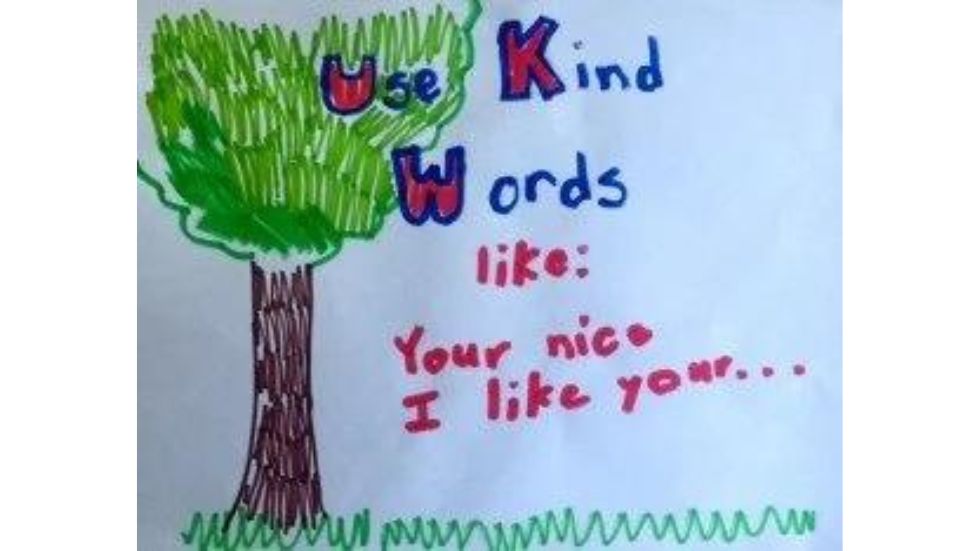
by Lisa Fuller | Apr 13, 2015 | Communication, General, Parenting, Sibling Issues
My oldest went off to college in the Fall, leaving his two younger siblings behind.
I wondered how his leaving would impact our family dynamic. And now, seven months in, I have an idea (hint: it’s not pretty).
What’s emerged is a fierceness between the remaining two. It’s like a cushion has been removed and now there’s the raw friction of two hard stones, one sharp (older one needing to be boss) and one holding firm (younger showing resolve to hold her own).
Side note: when I spoke to the kids about how I’d be depicting them for this article, they argued that they were each the one standing firm while the other was the nudger and antagonizer — confirming that there’s never “one true story” of what’s going on….
It reminds me of what Ken Kesey wrote in One Flew Over the Cuckoo’s Nest, “It’s the truth even if it never happened.”
Because I’ve parented for a while now, I know this dynamic, whatever it is, will change. It always does. But sometimes a simple dinner with the two of them is akin to nails running down the chalkboard. I’d love to run screaming from room and it makes me wonder, HOW IN THE WORLD DID I CREATE THESE MONSTERS?!
The other night at dinner we talked about what we could do to help improve the situation. My daughter (the younger one) decided that she’d make signs reminding us all of important relationship behavior.
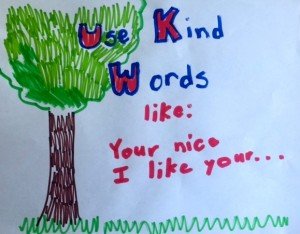
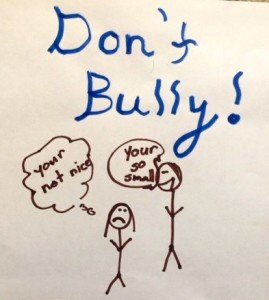
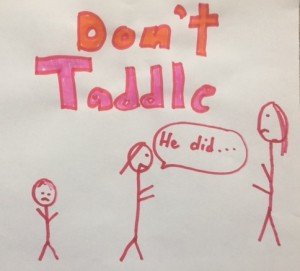 I love how her drawings show different perspectives.
I love how her drawings show different perspectives.
Once she’d created them she didn’t care to hash it out any further….
This is often the case with kids — it’s the DOING that’s important — not the processing.
Since she made these reminders, I’ve actually noticed more harmony – crazy magic.
The good the bad and the ugly news is that sibling issues, while highly irritating and button pressing, are normal and to be expected.
If you had brothers and sisters, think back to your own childhood… what did you learn from them?
Here’s a list from parents in my Parenting with Positive Discipline series:
- how to tease
- how to manipulate
- how to negotiate
- how to take turns/share
- how to stand up for someone
- how to keep company
- how to eat fast
- how to hate intensely
- how to love intensely
- how to be loyal
- how to fight
- how to defend
- how to ask for what you want or need
Sound familiar?
[tweetthis hidden_hashtags=”#parenting, #sibling battles”]We learn invaluable life lessons from our siblings.[/tweetthis]
My sister recently shared Jeffery Kluger’s Ted talk, “The sibling bond,” with me and my brother. Mr. Kluger tells stories illustrating the powerful influence siblings have on each other.
Here’s what stood out for me:.
There may be no relationship that affects us more profoundly than that of our siblings– none closer, harder, sweeter, happier, sadder, more filled with joy or fraught with woe than the relationship we have with our brothers and sisters. The sibling bond can be a thing of abiding love, our parents leave us too early, our spouses come along too late, our siblings are the only ones who are with us for the entire ride – over the arch of decades – there may be nothing that defines us and forms us more powerfully than our relationship with our brothers and sisters.
Siblings learn when to stand up for themselves, when to stand down – love, loyalty, honesty, sharing, caring, compromise, the disclosure of secrets and the keeping of confidences.
Siblings may be among the richest harvests of the time we have here.
And finally (I’ve paraphrased),
[tweetthis]Your sibling is someone you’ve road tested life with before having to get out there and travel it on your own.[/tweetthis]
Will it impact how we respond to sibling fighting if view it through this lens? I think so. Relationships are messy — we’re all learning all of the time.
When nails scratch their way down the chalkboard, take heart. Know you’re in good company. Breath, remove yourself if you can, and remember that tremendous learning is happening.
This week view sibling battles as opportunities to learn life lessons. Notice what’s being learned in your house? Notice what lessons you’d like to see more and less of and share in the comments below.
Stay tuned for Part Two: Your Surprising Role in Sibling Fights (and How to Change it)
Wanna talk? It’s easy to schedule a time here.
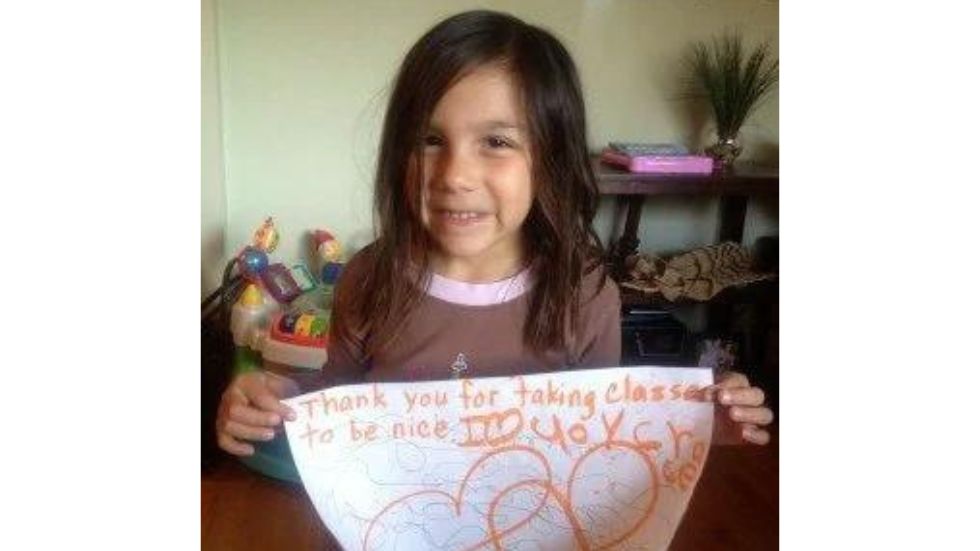
by Lisa Fuller | Mar 17, 2015 | Communication, Connection & Love, Discipline
Recently I received an email (with this photo) from Eric, a dad in my parenting class.
There have been so many changes for the better that have come up over the last 8 weeks since we started taking your class.
The screaming and yelling in our house is now filled with laughter and smiles. Everyday I tell my wife how proud I am of the way she handled a specific situation and I compare it to how we would have handled it before attending your class.
We have a new story every day and find ourselves constantly turning things into games or putting our children in the same boat.
I never realized how firm my discipline style was and the potential negative results that can come of that parenting style.
The fact that my daughter has noticed a difference and that she’s happier to be around me is really a life-changing event for me.
Thank you again!
My heart jumped for joy when I got this for two reasons:
- This sort of transformation is WHY I do what I do(!!!);
- I know exactly how he feels.
I, too, had been unaware of how my style impacted my son until the day he brought it to my attention.
I thought I’d made a simple request that day, many years ago. My 7-year old, Sunny, came in from playing outside and I told him to go wash his hands.
After I’d said the words and he’d gone into the bathroom, I was aware of a shift in energy — it felt like something dark and heavy came in the room.
When he came out, I could see hurt in his eyes, tears squeezing out of them as he said, “Why do you have to talk to me in that mean voice?”
My heart hit the floor. This bright, cooperative, sunny child never complained.
I took a breath. The look on his face along with his words woke me to the harshness of my tone that while unconscious, was undoubtedly powerful. I’d been oblivious.
I can’t quite remember what happened next.
Likely I asked him a question or two, put my arm around him, said “I’m sorry” and proceeded to feel “I am a horrible mother.”
My tone could have been caused by not knowing what to cook for dinner, exhaustion, an annoyance I felt about who knows what. What matters is I am clear it wasn’t about him.
His hurt shone a spotlight on my lack of awareness. Like the brave dad in my class, I never realized how my style negatively impacted my son until that day when he directly told me.
I felt shocked and grateful at the same time. Sunny directly told me that my words hurt him. This I considered a mini victory — a sign that maybe I wasn’t such a bad mom after all.
My young son trusted me. In our relationship he could be vulnerable and tell me how he really felt.
Children are sensitive.
Alfred Adler, whose work lays the foundation for Positive Discipline said that children are tremendous perceivers. Children soak up the energy and feelings around them. He went on to explain that children make meaning of their perceptions and not always in ways that make sense to parents.
For example, children can make very different meaning from the same event. Siblings can perceive the same event in very different way.
Here are some examples ….
Parent Action → Child perception and meaning making
- Mommy’s voice is mean → Mommy doesn’t like me/I’m bad
- Mommy’s voice is mean → This hurts and I’m going to tell her her voice is mean
- Mom & Dad are fighting → I must have been really bad
- Mom & Dad are fighting → They had a hard day, I’m going to leave the room
- Mom & Dad are moving to Maine → I wonder where I will go?
- We’re all moving to Maine → I’m excited
- Baby sister cries and gets noticed → I need to cry to get noticed
- Baby sister cries and gets noticed → I’m going to be a big helper
[tweetthis hidden_hashtags=”#parenting”]For better or worse what your child perceives is their reality![/tweetthis]
You may not be able to control how your child perceives reality (especially as it applies to you and your interactions with them). You CAN influence it by consciously softening your tone, acting with care, and choosing more positive words.
When my son came in that day, I could have said, “Sunny, let’s take a look at those paws of yours. They could use a good scrub before dinner.”
A helpful catchphrase to bring kind and firm to life is CONNECT BEFORE CORRECT!
I didn’t connect with him before sending him off. As a result my son woke me up to the power of my tone and energy.
I continue to be imperfect — at times unwittingly putting unwarranted anger on my kids. However, I do this far less than I used to.
The wake up call my son gave me is one of many I’ve received since becoming a parent. They all work together to move me in the direction I want to go as a human being:
- Being more conscious of my energy and tone;
- Connecting before I correct (kind and firm);
- And when all else fails, separating myself from my kids when I know I’m on the edge.
Eric got this same wake up call by attending my Parenting with Positive Discipline series. Once he starting being kind AND firm he realized his former style had a negative impact on his relationship with his daughter. He’s been amazed that such simple changes like asking for a hug or making a problem into a game, can be so life altering.
CONSIDER⇔SHARE⇔ACT
In what circumstances have you been surprised by your child’s interpretation of your behavior?
Does being conscious of your impact help you? If so, how?
By sharing your experiences in the comments below, you add to this conversation and support many parents by showing them they’re not alone.
If you haven’t already done so, join me on this journey!
Wanna talk? Schedule a time here.
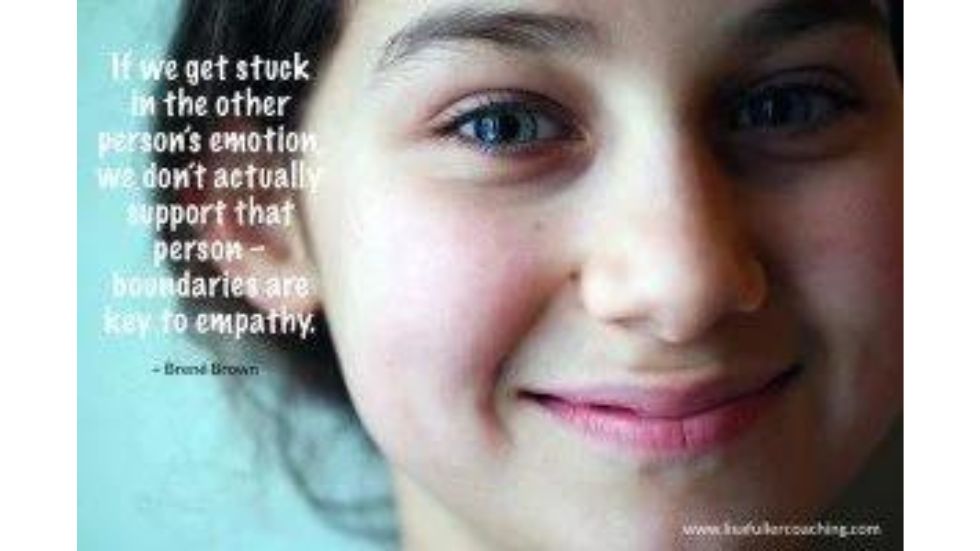
by Lisa Fuller | Jan 29, 2015 | Communication, Connection & Love, Encouragement, General, Parenting
Q: As the mother of a middle school girl, I struggle to be empathetic without jumping on the roller coaster of her ever-changing moods, emotions and dramas. And, as a woman in her late 40s, my emotions are often a 6 Flags of hormonally-induced thrills, so staying detached feels nearly impossible at times
Recently my seventh grader tried out for the school musical. After a series of micro disappointments this Fall (not making the “A” soccer team, getting put into an advisory group without any good friends, being just slightly outside of the ‘cool’ group, etc.), she was serious about getting a good part for the show. She practiced her song with a singing teacher several times and felt good about it.
Several days went by while she waited for the cast list to be posted. I worked on shifting her language away from ‘good’ and ‘bad’ parts in the show, to some limited success. I wanted to support her enthusiasm but it was draining to stay positive given my fear of the potential bad news ahead.
This daughter can be fairly stoic, but when she saw the cast list, she ran up to her room and sobbed so loudly I was afraid she would choke.
After a few minutes of trying to let her release her disappointment on her own, I went in to check on her. With your thoughts of empathy fresh in my mind, I resisted the temptation to tell her the emotions would pass or it didn’t matter or that the part was probably better than she thought, blah, blah, blah.
Instead, I let her cry, supporting the wildly strong feelings raging through her. Unfortunately, it was just a matter of time before I was crying too, and then we were both sobbing at the injustice of the world (did I mention I am a pre-menopausal woman with raging emotions?)
I managed to get myself together and put her to sleep, but then I could not stop crying. I just felt so sad for her and could not put it away. It took all the strength I had not to email the drama teacher and ask her if there was any way to revisit the cast list. Which is just a simply INSANE thing to even think, let alone seriously consider!
So here’s my question: how can we support our children with their dreams, projects, efforts and goals (especially our daughters) without getting enmeshed in the outcome? How can we let our older children navigate the disappointments and challenges of life without getting sucked into the emotional turmoil that goes along with the journey? Where do you draw the line between empathy and over involvement/attachment?
A: First, Michelle, congratulations on your success in avoiding many of the common barriers to empathy. What you did was no small feat — staying out of judgement, taking her perspective and touching a place in yourself (maybe a bit too deeply) that understood her feelings.
Simply defined as “the ability to understand and share the feelings of another,” empathy is nuanced. While you were able share your daughter’s feelings, it proved difficult to pull yourself out.
To answer your question, here are my ideas to strengthen your empathetic response even more while simultaneously moving you out of the helicopter parenting zone altogether.
From Helicopter Parenting to Empathy
- Validate her feelings. In your story Michelle, you give nice examples of how you did this — letting her cry and stay in her feelings, etc.
- Resist the urge to fix. You write, I resisted the temptation
 to tell her the emotions would pass or it didn’t matter or that the part was probably better than she thought, blah, blah, blah. This is cause for celebration! When you’re done partying let’s look at what you describe your fear of the potential bad news that she didn’t get a “good” part. Your feeling of fear fuels your underlying belief that something needs to be fixed. You can do one of two things here, keep your fear AND bite your tongue, which
to tell her the emotions would pass or it didn’t matter or that the part was probably better than she thought, blah, blah, blah. This is cause for celebration! When you’re done partying let’s look at what you describe your fear of the potential bad news that she didn’t get a “good” part. Your feeling of fear fuels your underlying belief that something needs to be fixed. You can do one of two things here, keep your fear AND bite your tongue, which
you did, or, with the help of a friend, coach or therapist, internally shift your perspective from disappointment = bad to disappointment = opportunity for growth. (I’ll go into this more in my next post). What I’m suggesting is more than a surface shift — that’s why it requires support.
- Share your own story of disappointment. By sharing a simple one sentence story of a time you didn’t make the team or you weren’t invited to the party, you let your daughter know that she’s not alone and most importantly, that she belongs. (A sense of belonging in family is profoundly impactful to a child’s sense of well-being.) For example, I remember when I longed to be chosen to play the role of Mary in the church nativity, yet I wasn’t picked and I felt terribly sad. One sentence that’s it. I can hear parents ask “Isn’t there more to say than that?!” No — children are self focused, your goal here is to simply let them know you’ve been there — voila.
- Be present. It’s not what you say that will make a difference, but simply your presence, your ability to be with your child. Ground yourself in what’s most important to you, tuck your phone and other distractions away and like the Beatles so beautifully sang, let it be.
- Practice mindfulness. Mindfulness strengthens our ability to have boundaries which according to Brené Brown’s research is key to empathy. If we get stuck in the other’s emotion, we don’t actually support that person – boundaries are key to empathy.
One of the many gifts in your story is how fully engaged you are in your daughter’s life.
Thank you Michelle for sharing your story and question, deepening our understanding of empathy. I appreciate and honor your willingness to be vulnerable — it can feel scary to divulge our struggles when we’re “supposed to be” the all-knowing parent!
Are you wanting someone to walk you through a parenting challenge like the one that Michelle shared? If so, visit my schedule to find a time for us to meet via phone or Skype.
I know that parenting is important to you — it’s worth taking time for yourself, so that you can be the parent you want to be, even in your most challenging circumstances.
Take a moment to share in the comment section below how you relate to Michelle’s story and what you want to remember from today’s post.
If you haven’t already done so, join me on this journey!
Wanna talk? Schedule a time here.
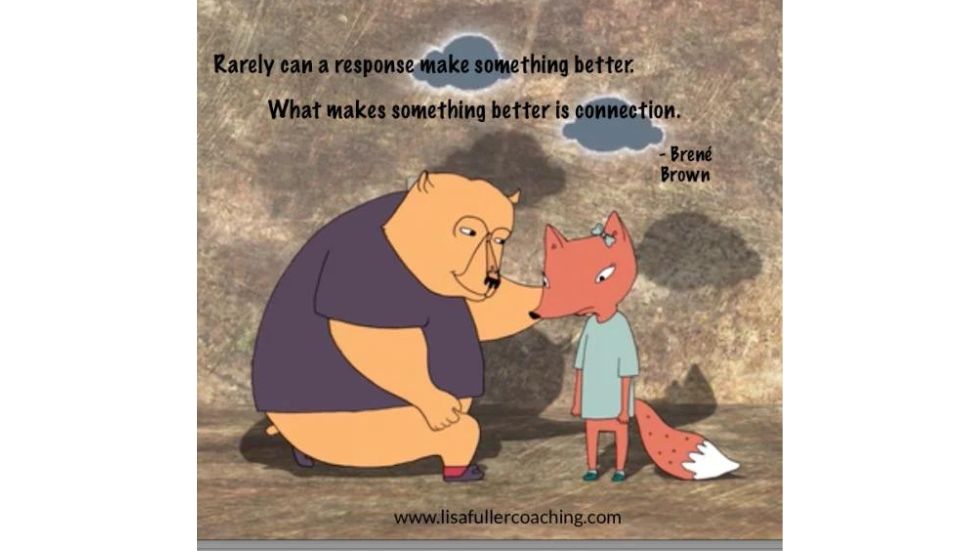
by Lisa Fuller | Dec 2, 2014 | Communication, General, Mutual Respect, Parenting, Self-regulation
In my last post, I shared how I missed an opportunity to practice empathy. Today’s story is the unexpected follow-up:
Songbird, my eight year old daughter, was at her cousin’s house. I texted my mom who was in charge, “When’s a good time for pick up?”
Mom texted back, “one hour.”
Five minutes later I receive another text, “Make that 30 minutes.” Then another message shot back “NOW.”
I head over to find Songbird curled up on the couch weeping – big sad boo hoo tears rolling down her cheeks. Mom starts to explain that cousin doesn’t want to share her new modeling clay – I hear a well-known refrain from across the room –
“It’s too special.”
Meanwhile, steady crying from Songbird.
Now comes the tongue biting as I work to keep these thoughts from tumbling out my mouth:
- It’s okay, you can put that on your Christmas list.
- I’m sure she’ll let you play with it, once she’s had it for a while.
- You’re really tired – it’s not a big deal. Now stop crying.
- Now don’t be that way Songbird, you know you can’t get everything you want.
Instead, having recently steeped myself in what empathy is and is not I wait, refrain from the above garden variety of knee jerk reactions.
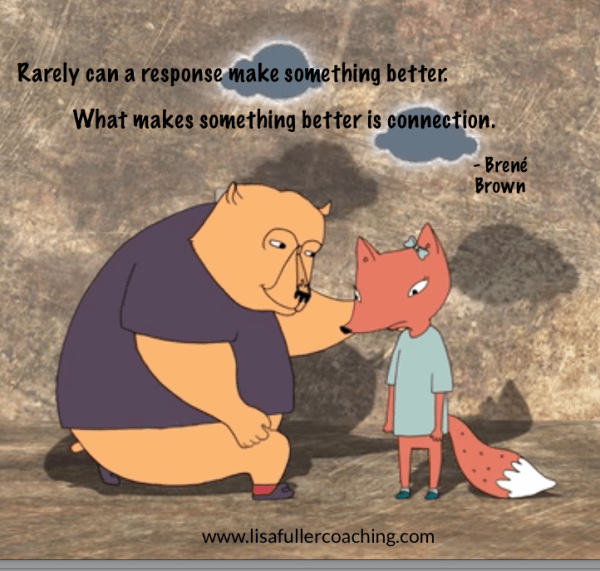 Then, consciously I say, you look sad.
Then, consciously I say, you look sad.
Songbird: Yes, I’m really sad!
Me: It seems like your heart hurts.
Songbird: Yes, (boo hooo) it hurts a lot.
Me: I’m sorry sweetie. Let’s say goodbye and go home.
Songbird: (Weep weep) Okay.
Wailing and sobbing continue as we head out to the car – they continue as we drive.
When we arrive home, 10 minutes later, Songbird gets out of the car, singing (makes sense), she skips her way to the door.
All of the usual responses we might use (those I listed above) diminish trust. When we use empathy — in this case, simply acknowledging and naming Songbird’s sadness — we build trust.
Expressing empathy in this situation was simple but not necessarily natural or easy – my bloody tongue is proof!
Simple, how? – all I did was genuinely acknowledge her emotion – naming it and finding a soft place in myself that has known that feeling too.
Not easy, how? I’ll put myself out there and say that although I’ve been teaching Positive Discipline classes for 10 years, empathy is a conscious practice, one that I only feel I’ve recently come to more fully understand.
So, today I’ve made a commitment to myself to practice deliberate empathy – and to expect I’ll make mistakes along the way. I’ll comeback around when I’ve missed the mark and attempt connection through empathy again and again.
According to the work of Theresa Wiseman and Kristin Neff, these five attributes of empathy are key. (You can see the animated video depicting these attributes, narrated by Brené Brown, by clicking the photo above.)
In this list, I’ve included examples of:
1. How I practiced this attribute in my story and
2. Common responses that act as barriers to empathy.
-
Staying out of judgment:
- Keeping my mouth closed about any internal evaluation I’m making as opposed to saying,
- “I don’t know why your cousin hasn’t learned how to share yet – at least you’re a good girl.”
-
Taking the other person’s perspective. What’s that experience like for you?
- “You look like your heart hurts.” instead of…
- “Why are you making it such a big deal? Buck up and move on!”
-
Understanding the emotion you’re hearing. How can I touch within myself something that feels like what my child may be feeling? Check in for clarity by asking questions.
- “You seem really sad.” as opposed to…
- “You really shouldn’t feel that way – you can put modeling clay on your Christmas list.”
-
Communicating our understanding about the emotion. (This seems like overkill for this example, but you might say…
- “Oh I know I feel sad when I don’t get to explore something I’m really curious about” as opposed to…
- Not understanding that emotion… “It’s really aggravating when people don’t share.”
-
Practicing mindfulness.: Rather than pushing away an emotion because it’s uncomfortable, feel it and move through it. If we get stuck in the emotion we don’t actually support the other person– boundaries are key to empathy.
- “Your heart really hurts.”
- “It’s very upsetting that your cousin won’t share with you. I’m pissed about it and will talk to her mom as soon as I can.”
Can you feel how the #2 responses edge out the space needed for empathy? Kids need a safe space to have their feelings so they can move through them and eventually let them go.
Thank you for joining me in exploring the complex nature of empathy.
The two big takeaways:
-
Empathy takes conscious awareness – it isn’t natural, especially with your loved one.
-
Empathy is not about perfection but rather a practice that you can come back to again and again – it takes being open to being vulnerable to do it.
Take a moment to share your empathy hit or miss in the comments below.
Wanna dig deep into empathy and other powerful tools? Contact me for one on one coaching!
If you haven’t already done so, join me on this journey!
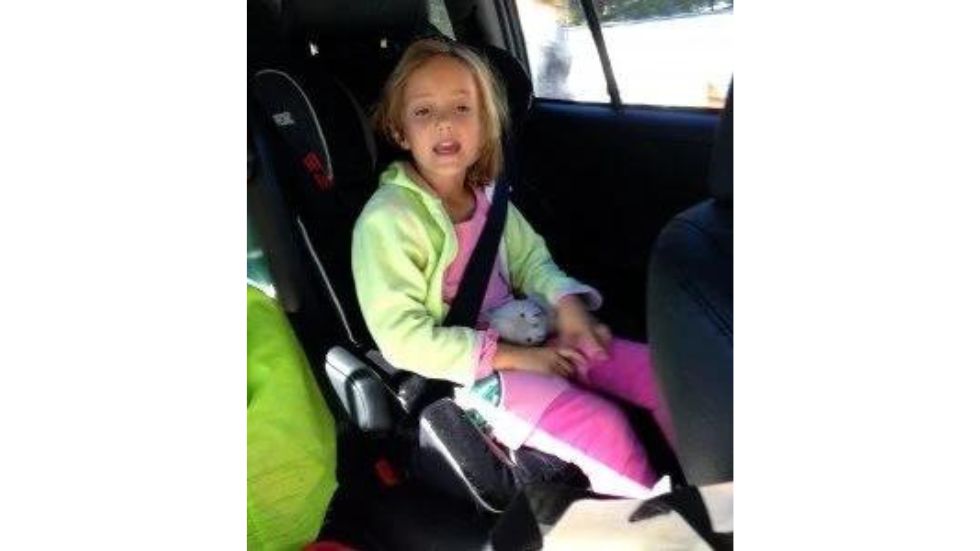
by Lisa Fuller | Jul 7, 2014 | Communication, Connection & Love, General, Parenting
I have a confession.
When my daughter asks me if I like Elsa or Anna better, my eyes glaze over. (In case you don’t live in my universe, they’re characters from Disney’s latest blockbuster, Frozen.)
Seriously, I don’t care, much less have an opinion.
I must’ve nodded off at a pivotal moment of character development. I wasn’t paying attention.
Yes, I admit it. Tuning into to my child’s frequency is sometimes a real challenge.
Apparently, I’m not the only one.
 A mom in my last parenting series described a similar scene: Denise and her 5 year-old daughter, Tanya, were in the car. Tanya loves to weave a tale – especially when she’s got a captive audience! So, she started in on one of her detailed stories and after a minute, Denise tuned out and started with an auto pilot response of a ha, a ha, aha, in an unconscious attempt to convey listening to Tanya.
A mom in my last parenting series described a similar scene: Denise and her 5 year-old daughter, Tanya, were in the car. Tanya loves to weave a tale – especially when she’s got a captive audience! So, she started in on one of her detailed stories and after a minute, Denise tuned out and started with an auto pilot response of a ha, a ha, aha, in an unconscious attempt to convey listening to Tanya.
Tanya stopped, mid sentence.
You’re using your pretend voice mommy.
It’s humbling how kids NAIL IT. Count on your kid to expose, with raw precision, whatever it is you feel you’re “hiding”.
Have you been caught using your “pretend voice?”
Has your child let you know, in so many words, when you’re out to lunch?
Note: as they grow and become accustomed to your shenanigans, they’ll stop talking if they don’t feel listened to.
Denise told Tanya she was sorry and that indeed she wasn’t listening – [validating Tanya’s feelings] please start again at the beginning because I want to really pay attention to what you’re saying.
Here’re 3 tips for listening… even when the topic may not enthrall you.
- Contain the conversation so you have a fighting chance to earnestly listen.
Your kids will get the message you’re listening when you put distractions away. Phone in a drawer, laptop out of sight and T.V. off (so passé).
Make eye contact. Remember the term undivided attention? That’s what we’re after here. And yes, it’s no wonder we struggle with the ADHD epidemic when there’s a host of devices beeping to grab your attention.
- Clear the clutter from your mind. Sure, sounds good but what does mind clutter look like and how do you clear it?
I’m referring to those great ideas that pop up when someone’s telling you a story and you’re just waiting for a space to open so you can share your brilliant thought.
We’ve all been there.
Set your brilliant ideas (aka clutter) aside and imagine your mind is a clear blue sky, or whatever vast image inspires you. Mindfulness anyone?
- Curiosity creates a bridge. Although I might not be interested in Elsa and Anna, when I muster the curiosity about her question and it’s answer, I’m building a bridge between us. Of course it’s not about the characters but the qualities that she most admires and why.
Another option for Denise would have been to acknowledge that the container wasn’t ideal …“Honey Pie, you’re right, I wasn’t paying close attention. I’m sorry. Could you save that story for me when we get home because it’s hard for me to concentrate on two things at once and I’m focused on safe driving right now.”
When we truly L*I*S*T*E*N we get the juicy goods. We learn so much about what makes our children tick.
Sure, there’s plenty of tedious stuff too, but the juicy stuff is there. Just waiting for you to hear it :).
And in case you’re curious, my daughter likes Elsa better because she’s “not clumsy” and she’s got magic freezing powers! I hear that….
When do you find it difficult to listen to your child? Do you notice other times when it’s easy? Please share your thoughts in the comments below!
If you haven’t already done so, join me on this journey!
Wanna talk? Schedule a time here.





 I love how her drawings show different perspectives.
I love how her drawings show different perspectives.

 to tell her the emotions would pass or it didn’t matter or that the part was probably better than she thought, blah, blah, blah. This is cause for celebration! When you’re done partying let’s look at what you describe your fear of the potential bad news that she didn’t get a “good” part. Your feeling of fear fuels your underlying belief that something needs to be fixed. You can do one of two things here, keep your fear AND bite your tongue, which
to tell her the emotions would pass or it didn’t matter or that the part was probably better than she thought, blah, blah, blah. This is cause for celebration! When you’re done partying let’s look at what you describe your fear of the potential bad news that she didn’t get a “good” part. Your feeling of fear fuels your underlying belief that something needs to be fixed. You can do one of two things here, keep your fear AND bite your tongue, which


 A mom in my last parenting series described a similar scene: Denise and her 5 year-old daughter, Tanya, were in the car. Tanya loves to weave a tale – especially when she’s got a captive audience! So, she started in on one of her detailed stories and after a minute, Denise tuned out and started with an auto pilot response of a ha, a ha, aha, in an unconscious attempt to convey listening to Tanya.
A mom in my last parenting series described a similar scene: Denise and her 5 year-old daughter, Tanya, were in the car. Tanya loves to weave a tale – especially when she’s got a captive audience! So, she started in on one of her detailed stories and after a minute, Denise tuned out and started with an auto pilot response of a ha, a ha, aha, in an unconscious attempt to convey listening to Tanya.
